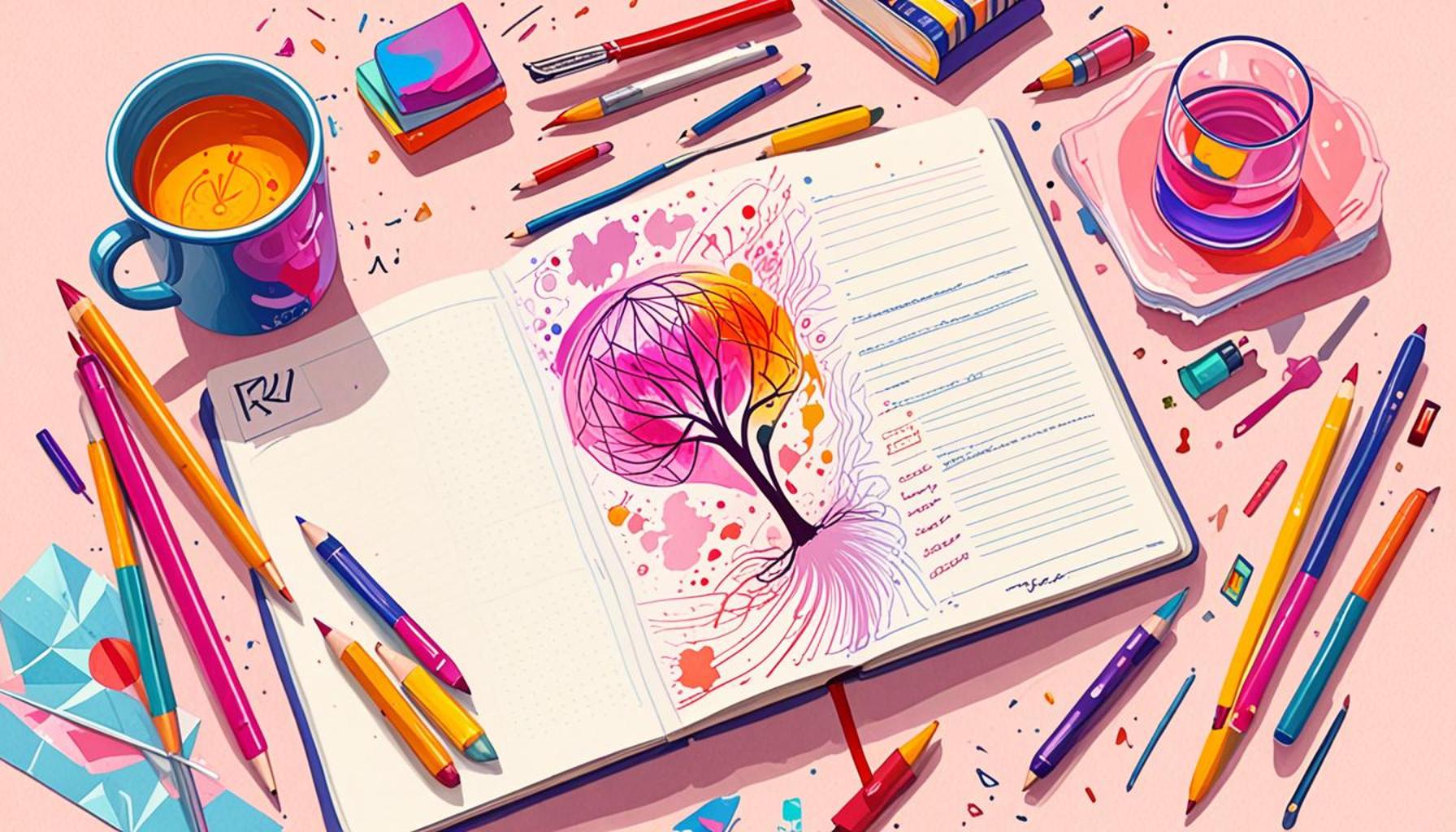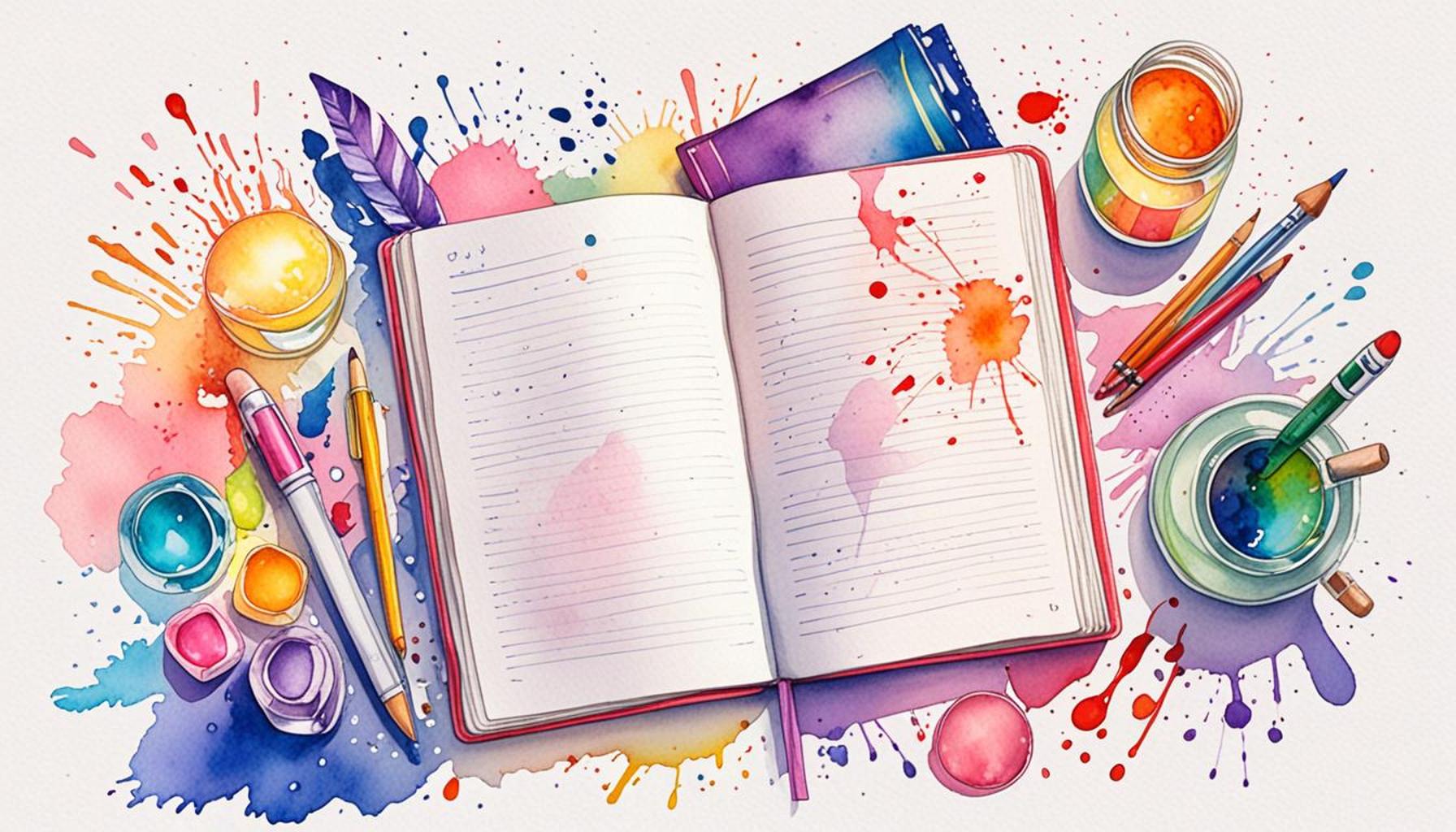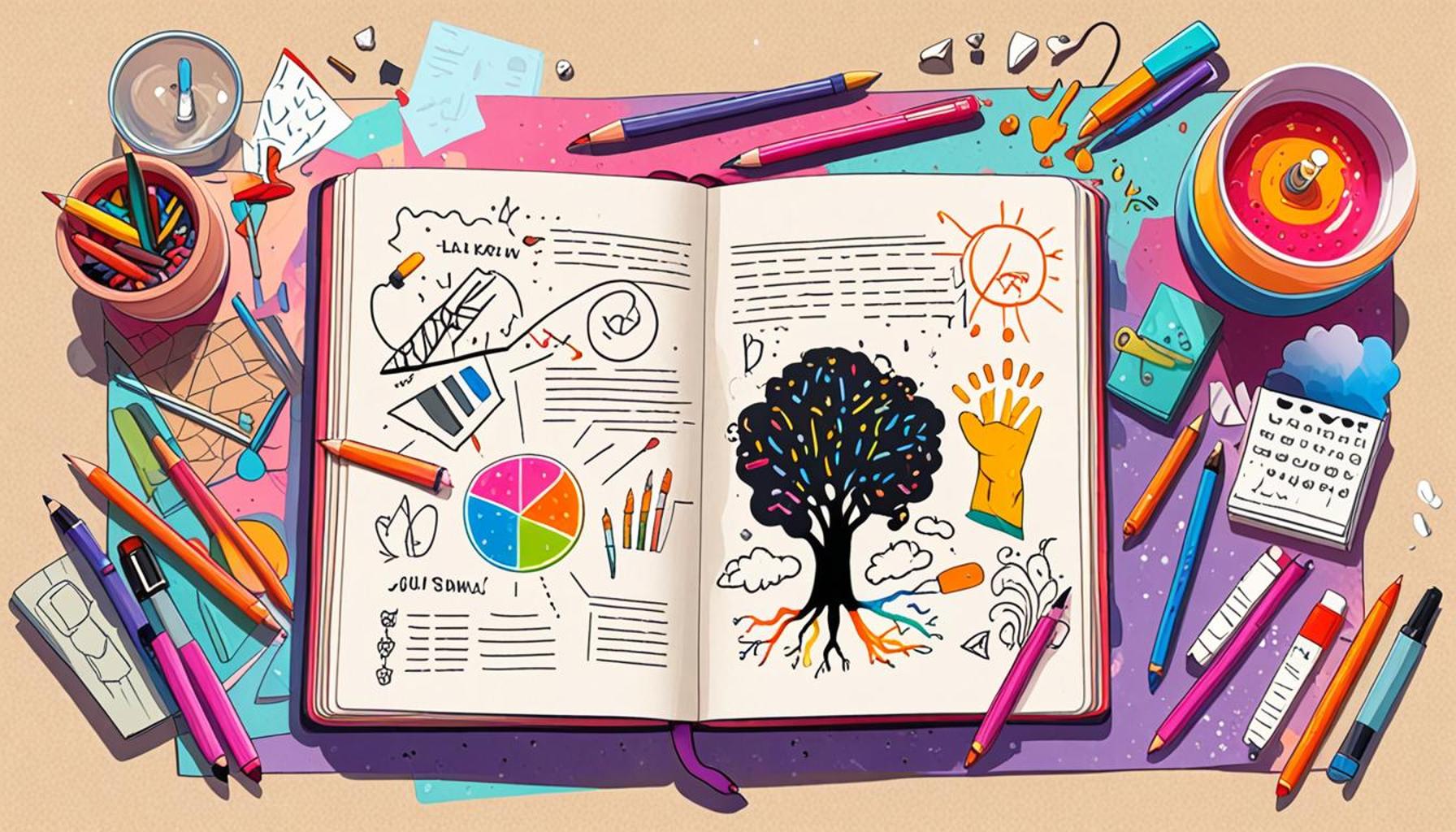Reflective Diary: A Tool to Cultivate Self-Confidence in Competitive Environments

Unleashing Potential Through Reflection
In competitive environments, self-confidence can be the differentiating factor between success and failure. Many individuals strive to excel, yet often find themselves hindered by self-doubt or anxiety. Exploring tools that foster confidence is essential, and one such tool is the reflective diary.
The Power of Reflection
A reflective diary serves as a personal testament to one’s thoughts, emotions, and experiences. By documenting their daily encounters, individuals can embark on a transformative journey of self-discovery. This practice not only encourages self-expression but also provides structured opportunities for personal growth. Through regular engagement with a reflective diary, individuals can:
- Identify personal strengths and weaknesses: By analyzing past experiences, individuals can recognize patterns that reveal their core competencies and areas that require improvement. For instance, a student may discover that they excel in group projects but struggle with timed exams.
- Track progress in various competitive settings: Documenting successes and failures allows people to monitor their developments over time. An entrepreneur can reflect on the strategies that worked or didn’t work in their latest business venture, thus refining their approach in the future.
- Enhance self-awareness through critical analysis: A thoughtful review of challenges faced and overcame empowers individuals to understand their emotional responses better. This in-depth awareness can lead to more resilient coping strategies moving forward.
Cultural Relevance
In Nigeria, where competition is fierce in fields such as education, business, and sports, cultivating self-confidence becomes crucial. High-stakes exams like the West African Senior School Certificate Examination (WASSCE) create significant pressure for students. A reflective diary enables them to confront their fears and track their study efforts, paving a path to success. For instance, a student preparing for WASSCE can reflect upon each subject’s challenges and triumphs, ultimately enhancing their readiness for the exam.
Entrepreneurs navigating the complexities of Nigeria’s dynamic markets can greatly benefit from reflective writing as well. As they recount their experiences of pitching ideas or facing rejection, they can pinpoint effective techniques that helped establish rapport with clients or investors. This process not only builds self-assurance but also confirms that each setback is a stepping stone toward eventual triumph.
Athletes, too, can harness the power of a reflective diary. With national competitions on the horizon, documenting their training routines, performance analyses, and mental states can lead to improved techniques and strategies. For example, a football player could write about their experiences in training sessions, reflecting on what techniques were effective and which ones need improvement.
By committing to the practice of reflective journaling, individuals not only process their experiences but also empower themselves to face challenges head-on. The journey toward greater self-confidence starts with a simple yet profound act of putting thoughts on paper. Engaging with one’s inner thoughts and emotions in this manner transforms the chaotic process of self-improvement into a structured, enriching adventure. The act of reflection may just be the key that unlocks the door to unparalleled potential.
CHECK OUT: Click here to explore more
Navigating Challenges through Personal Insight
In a society where the competitive spirit permeates various sectors, from academia to business and sports, the importance of having self-confidence cannot be overstated. A reflective diary helps individuals to navigate challenges by fostering insight into their personal experiences. Systematic reflection on one’s journey can lead to transformative changes, allowing individuals to rise above doubts and establish a robust sense of self-worth.
Building a Foundation of Self-Confidence
The journey of self-improvement often begins with self-awareness, which can be significantly enhanced through a reflective diary. For individuals striving for excellence, this tool becomes a space to create a dialogue with oneself. Reflective writing allows individuals to articulate their thoughts and feelings in a structured format, promoting clarity and understanding. By addressing the complexities of their experiences, they can:
- Articulate fears and anxieties: Recognizing the aspects of competition that induce stress can help individuals confront their fears more proactively. For instance, a medical student facing rigorous entrance exams might write about their apprehensions concerning clinical skills. By putting these fears on paper, they detach from irrational anxieties and can create action plans for improvement.
- Celebrate small victories: Documenting achievements—no matter how minor—provides a cumulative effect that boosts self-esteem. An aspiring musician, for example, may keep track of their practice sessions and note improvements, no matter how small, which ultimately reinforces their confidence to perform in front of an audience.
- Develop persistence through setbacks: Reflecting on failures turns them into learning experiences. By revisiting moments of disappointment, such as an entrepreneur failing to secure funding, they can identify what went wrong and fortify their strategies for next time. This process teaches resilience, vital for success in competitive arenas.
Impact on Academic Performance
In Nigeria, where academic competition is intensely pronounced, especially with standardized examinations like the Unified Tertiary Matriculation Examination (UTME), maintaining self-confidence is pivotal. A reflective diary not only serves as a record of daily study sessions but also as a mental framework to process successes and challenges. Students can explore their study habits, evaluate what strategies worked for various subjects, and adjust their approach based on introspection. This analytical mindset can lead to improved performance on examination day, as they will have consciously worked through their challenges on paper.
Moreover, reflective writing can remove the stigma of failure. If a student does not achieve the desired score, they can reflect on the steps taken, examine their preparation methods, and understand that each attempt is a valid part of the learning curve. In this way, a reflective diary becomes a crucial ally, nurturing a more sustainable form of self-confidence that stands the test of adversity.
Ultimately, engaging with a reflective diary encourages individuals to manifest their thoughts, fears, and aspirations, laying a strong foundation for self-confidence in the face of competition. It transforms a seemingly daunting journey into a series of manageable steps—a profound exploration that enables one to grow while learning the art of resilience.
The concept of using a reflective diary as a tool to cultivate self-confidence in competitive environments is both innovative and practical. It serves as a personal sanctuary where individuals can articulate their thoughts, accomplishments, and challenges. This reflective practice aids in processing emotions and experiences, ultimately leading to enhanced self-awareness and increased self-confidence.
In competitive settings, the pressure to perform can often lead to anxiety and self-doubt. By utilizing a reflective diary, individuals create a structured way to document their journey, track progress, and acknowledge achievements, no matter how small. This not only reinforces their capabilities but also fosters a growth mindset. Each entry serves as a reminder of past successes, reinforcing personal strengths that can be leveraged in future competitions.
Moreover, reflective writing prompts individuals to critically examine their experiences, identify patterns, and set actionable goals. This process encourages the development of problem-solving skills and resilience — traits crucial for thriving in highly competitive environments. Through regular entries, users of a reflective diary can identify triggers of stress or self-doubt and build strategies to address them, thus enhancing emotional intelligence and adaptability.
Furthermore, the act of writing allows for a unique opportunity to separate oneself from negative thoughts. It transforms abstract feelings into tangible language that can be analyzed and understood, paving the way for a more constructive inner dialogue. By actively reflecting on experiences, individuals can reshape their narratives, viewing challenges as opportunities for growth rather than insurmountable obstacles.
| Advantage | Description |
|---|---|
| Enhanced Self-Awareness | Enables users to understand their thoughts, feelings, and behaviors, leading to improved decision-making. |
| Strengthened Resilience | Facilitates coping strategies to deal with setbacks, thereby building confidence and persistence. |
In combination with other confidence-building practices, a reflective diary can significantly empower individuals, transforming doubt into motivation and enhancing their performance in competitive arenas. It is indeed a powerful tool for anyone looking to nurture their self-confidence and achieve their fullest potential.
RECOMMENDED: Check out this similar article
Fostering Growth and Emotional Intelligence
As individuals delve deeper into the practice of maintaining a reflective diary, they cultivate not only self-confidence but also emotional intelligence. This quality is essential in competitive environments, where understanding and managing one’s emotions—and the emotions of others—can greatly influence outcomes. The connection between reflective writing and emotional intelligence stems from the opportunity it provides for individuals to analyze their feelings and reactions to various situations.
Enhancing Emotional Awareness
When individuals regularly jot down their thoughts and feelings in a reflective diary, they develop a heightened sense of emotional awareness. This self-exploration enables them to better understand their emotional triggers and responses. For instance, a young Nigerian athlete preparing for a national competition may recount their pre-game jitters in their diary. By exploring the feelings associated with these high-pressure moments, they can identify coping mechanisms, such as deep breathing or visualization techniques, to manage anxiety more effectively. This self-awareness directly contributes to their self-confidence, as they equip themselves with strategies to navigate the emotional rollercoaster of competition.
Strengthening Decision-Making Skills
A reflective diary plays a crucial role in enhancing decision-making capabilities, especially in high-stakes environments. By analyzing past decisions in their writing—such as choosing a career path or handling a difficult conversation—individuals can gain insights into their thought processes and identify patterns in their behavior. For example, a student in Nigeria grappling with the decision to pursue engineering versus business can reflect on the values that drive their choice. Such insights can crystallize their priorities and reinforce their confidence in the decisions they ultimately make.
Encouraging Vulnerability and Growth
In competitive settings, there is often a stigma around showing vulnerability. However, embracing vulnerability is vital for personal growth. Through reflective writing, individuals learn to acknowledge their insecurities and imperfections, allowing them to cultivate a genuine sense of self-worth. For instance, a young entrepreneur who faced rejection from multiple investors can use their diary to express frustration and self-doubt. By confronting these feelings openly, they can reframe their perceptions of failure and push themselves to learn from the experience, ultimately bolstering their confidence when facing future challenges.
The Power of Mentorship through Reflection
Reflective diaries also present an opportunity for individuals to identify potential mentors and role models in their lives. By reflecting on differences in experiences, values, and attitudes, individuals can clarify who they admire in their chosen industries. A university student studying law in Nigeria might keep a diary to critique various judgments made by prominent figures in the legal field. This critical engagement not only shapes their understanding but also inspires confidence in their own potential to make an impact through similar commitment and integrity.
In essence, maintaining a reflective diary is a multifaceted practice that extends beyond mere self-exploration. It shapes emotional intelligence, decision-making, and resilience by offering a safe space for individuals to engage with their inner selves. As they cultivate these attributes through reflection, they inevitably enhance their self-confidence, equipping themselves to thrive in competitive environments.
YOU MAY ALSO LIKE: Read read another article
Conclusion: Embracing Reflection for Empowerment
In today’s fast-paced and often demanding world, fostering self-confidence is essential, especially in competitive environments. The practice of maintaining a reflective diary emerges as a powerful tool not just for self-discovery but for cultivating resilience and emotional intelligence. Through the act of writing, individuals create an internal dialogue that encourages enhanced emotional awareness and strengthens decision-making skills.
The journey of reflection allows individuals to confront their vulnerabilities and imperfections, ultimately transforming perceived weaknesses into sources of strength. By acknowledging their fears and uncertainties on paper, they can develop adaptive strategies to navigate high-pressure situations, whether in academia, sports, or business. Moreover, as they reflect on their aspirations and admire mentors from their respective fields, they begin to appreciate the pathways that lead to success, sparking an innate belief in their potential.
In Nigeria, where competition is fierce across various sectors, implementing reflective writing in daily routines can offer a competitive edge. It invites individuals to not only record their victories and setbacks but also to understand the underlying emotions that accompany these experiences. This practice promotes continuous growth, serving as a roadmap that guides them through challenges with increased confidence and self-awareness.
As we reflect on our journey through competitive landscapes, let us harness the transformative power of reflective diaries. Engaging in consistent self-exploration can empower individuals to face their fears, embrace challenges, and ultimately thrive in their endeavors, paving the way for a more confident and fulfilling life.


